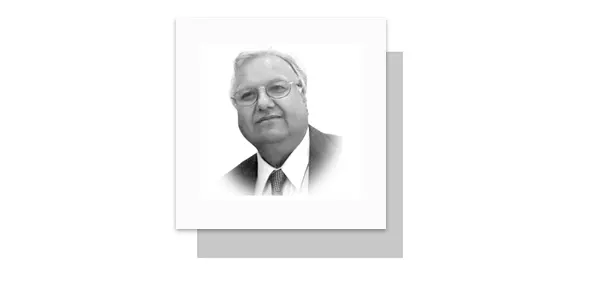MY first meaningful introduction to IftikharGillani came through someone who has now crossed every limit in his enmity towards Islam and Pakistan. This was Pushpendra, the then President of the Delhi Press Club and Aaj TV correspondent in the Indian capital. Once, he brought IftikharGillani’s book to me on a visit to Karachi. In this book, IftikharGillani detailed the heartbreaking story of the treatment he endured in Tihar Jail. The book was titled “MeryTihar Men Shab-o-Roz” (My Days and Nights in Tihar).
Reading this book requires courage and resilience akin to that of the late Syed Ali Gillani. The horrors faced by those who enter that jail are unimaginable in today’s progressive democratic age. IftikharGillani recounts that as soon as he entered the prison, its brutal staff shoved him into a filthy toilet, filled with dirt and human waste and ordered him not just to clean it but to make it shine. How? None of the necessary cleaning materials were provided, so he had to use his own clothes. This was the jail’s “welcome.” This was just the preface to his time there, giving only a glimpse of the treatment that would follow.
A few days ago, my respected mentor, Professor Dr.ShehzadIqbal Sham, called me and asked if I knew IftikharGillani. I replied, “Of course.” He invited me over, saying that Iftikhar is here, and he is also launching his book, “ IkesvinSadika Bharat awrMusalman (India and Muslims in the 21st Century). This book is a collection of his writings, spanning several years, published by IPS and meticulously compiled by young researcher UsamaHameed. It provides an insightful understanding of modern India, its psyche, ambitions and the past and future of Muslims living there. IftikharGillani deserves praise for writing and publishing these critical analyses with great courage, even while living in New Delhi.This book begins with a concise but substantial analysis of the RSS’s organizational structure, mindset and behaviour towards other religions and then covers issues related to Muslims’ identity, treatment of minorities (especially Muslims), true face of Indian secularists and new laws introduced in Kashmir and Assam that have brought new challenges for Muslims. This book also delves into issues like jihad and terrorism. While a detailed introduction to the book is needed, for now, let’s focus on the discussions from that gathering.
This meeting was chaired by former Foreign Secretary SohailMahmood. While discussing the state of affairs in India, both SohailMahmood and IftikharGillani expressed concern about Pakistan’s lack of understanding of India. Whatever little knowledge Pakistan has about India is often superficial, based on hearsay and scattered news. Khalid Rahman said that, looking at Pakistani newspapers, it seems as if nothing happens in India other than the activities of Bollywood actresses. SohailMahmood and IftikharGillani’s personal experiences, however, provide more striking insights.
IftikharGillani recalls the historic Babri Masjid demolition case, which was prolonged but never reached justice. He shares that someone had managed to photograph the incident, which could have helped identify the real culprits.
This person was made a witness, but after years of court summons, he was never called to testify. When he protested, a date was finally set, but he was threatened. Upon informing the court, it shifted focus from the main case to the threats, and after months of delay, he had to withdraw his complaint. Despite this, the Babri Masjid case moved at a snail’s pace. Gillani asserts that this is India’s justice model for minorities, especially Muslims.
SohailMahmood shared that a JamiatUlema-e-Hind leader told him that not a day passes without Indian Muslims being punished for the creation of Pakistan.
Regardless of which party is in power, Indian leaders openly declare that Muslims claimed their share by creating Pakistan, so they have no right to make demands from the Indian state. Muslims and their institutions remain highly insecure in India. SohailMahmood recounted another incident: while he was High Commissioner to India, Pakistan issued a special stamp commemorating Sir Syed Ahmad Khan’s 200th birth anniversary. He wanted to personally present the stamp to the Vice Chancellor of Aligarh University, but due to the VC’s reluctance, meeting could not happen, missing a valuable opportunity for goodwill. What should Pakistan do in this regard, and what strategy is needed for Indian Muslims? These are two separate subjects. Pakistan has a dual responsibility. Ambassador Syed AbrarHussain, referring to Syed Ali Gillani, said that Pakistan’s strength empowers them and their goals come closer. Indian Muslims, seeing Pakistan as a safeguard for their rights, feel it must first stabilize itself.
The second responsibility lies with Indian Muslims. Both IftikharGillani and SohailMahmood believe that an alliance is needed among India’s oppressed communities, with a particular responsibility on Muslims. If they focus especially on the Dalit communities, it could change the landscape rapidly, but so far, they have not paid attention to this critical aspect. The session concluded with the observation that both Pakistan and Indian Muslims operate largely through verbal exchanges rather than building an archives or a data bank regarding India, despite the value of such efforts in both normal relations and current strained ties with this country.
—This writer is former advisor to the president of Pakistan, author & mass media theorist.
(farooq.adilbhuta@gmail,com)










